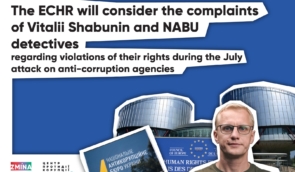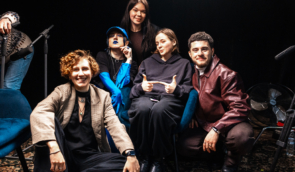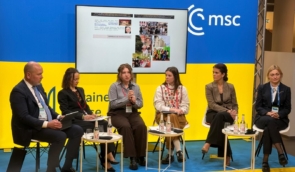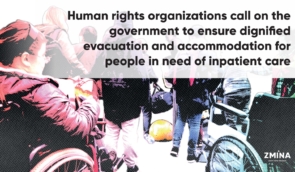The international conference Crimea Global has started
The situation in Crimea, political prisoners in Russia, deportation and militarisation of Ukrainian children, geopolitics – these were the topics discussed amidst the sound of sirens on the first day of the second International Conference Crimea Global in Kyiv. The event was interrupted from time to time by warnings about the possibility of rocket attacks, but the participants did not stop – they went to the shelter and then returned to the hall to continue the exchange of views.
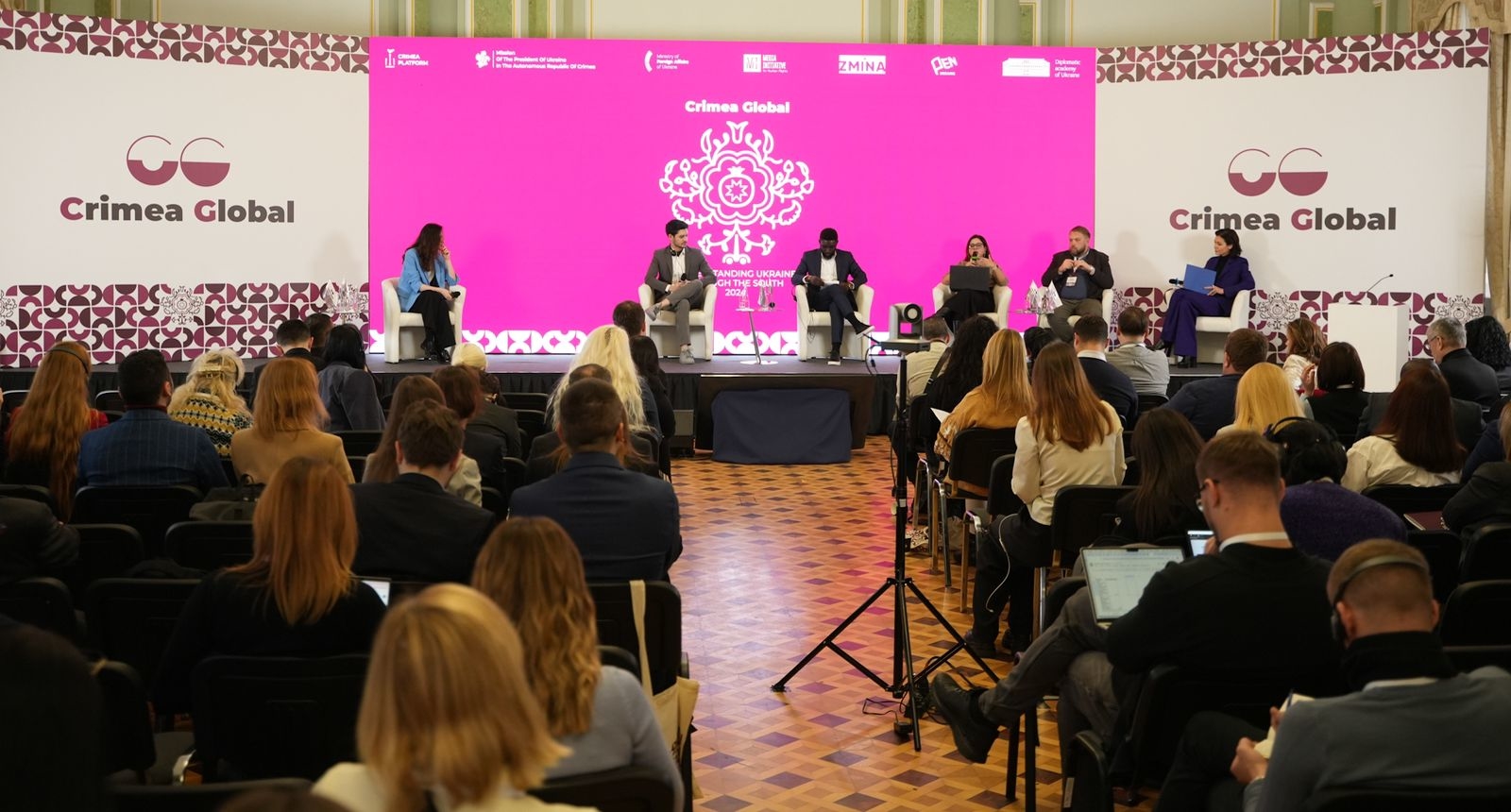
“Even after 10 years, resistance in Crimea continues”
The first day of the International Conference Crimea Global took place on November 21, 2024. The event was organised by human rights defenders, namely the Media Initiative for Human Rights, the Ukrainian Helsinki Human Rights Union, the International Partnership for Human Rights, the Human Rights Centre ZMINA, and the Ukraine 5AM Coalition, with the support of the Office of the Crimean Platform. Thanks to this initiative, human rights defenders and opinion leaders from Africa, Asia, the East and Latin America came to the Ukrainian capital.
For these regions, Ukraine is partly terra incognita, and a large part of the inhabitants of distant continents and Eurasia are influenced by Russian propaganda. The conference aims to change this situation and tell about Ukrainian Crimea and other Ukrainian territories occupied by Russia, their problems and Russian aggression. The symbol of this year’s event is the pomegranate, which is especially valuable in Crimea and exotic for people in many countries.
“Last year’s conference showed that Crimea is not just a dot on the map, it is a place from which you can conduct a dialogue with the countries of Asia, the East, and Latin America,” said Tamila Tasheva, Permanent Representative of the President of Ukraine in the Autonomous Republic of Crimea, during the opening ceremony of the Crimea Global.
 Tamila Tasheva
Tamila TashevaThis is the second Crimea Global International Conference. The first one took place in 2023 and proved to be a successful event, so the organisers decided to make it a recurring event. “For us, this war has been going on for 10 years and it all started in Crimea. That is where the Russians committed crimes against civilians. But even after 10 years, the resistance in Crimea continues,” said Tasheva.
During the speech of Nariman Dzhelyal, First Deputy Chairman of the Mejlis of the Crimean Tatar people and who was recently released from illegal imprisonment in Russia, every foreign delegate present was able to comprehend what it is like to be a patriot of Ukraine in the occupied territory.
“I spent almost three years in a Russian prison because I publicly opposed the occupation of Crimea. In 2014, Crimean Tatars became hostages of the Kremlin’s authoritarian regime. Many of them spoke out in defence of Ukraine. As a result of the illegal and politically motivated persecution by the occupation authorities, many were forced to leave. I was detained in 2021 and sentenced to 17 years in prison. Surviving all these lies during the investigation and trial was the hardest thing for me. In Russia, political trials have nothing to do with justice. Judges, in violation of the law, act as a party of the prosecution,” said Nariman Dzhelyal.
Dzhelyal also highlighted the problem of the lack of medical care for Ukrainian political prisoners in Russian prisons.
 Nariman Dzhelyal
Nariman Dzhelyal“When I got sick, all the medicines that my wife had given me were confiscated and not given to me… Not only that, but I was not allowed to sit on the bed… I laid down on the floor and tried to rest that way,” Nariman Dzhelial said.
“Russia is targeting hospitals and schools with missiles, both in Syria and Ukraine”
Maksym Subkh, Special Representative for the Middle East and Africa at the Ministry of Foreign Affairs of Ukraine, noted that it is very important to convey the truth about the situation in Ukraine and Russia’s crimes to the regions that Kyiv has not previously paid attention to:
“We have recognised this shortcoming. Ukraine has opened a number of embassies, in particular in Africa, and we are starting to spread the word about Ukraine in the region.“
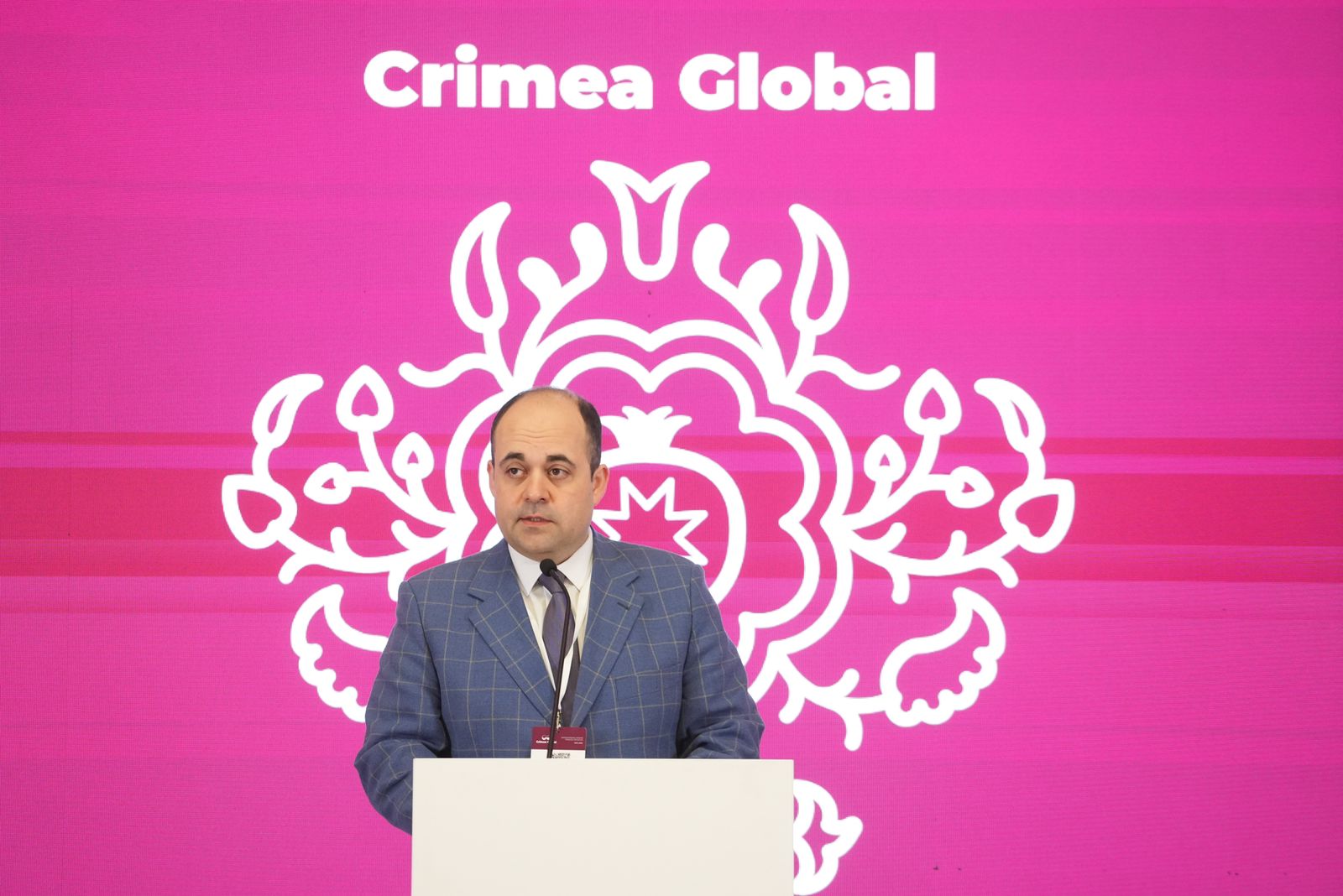 Maksym Subkh
Maksym SubkhAn example of high interest and support for the delegates was the fate of Anuranh Krishna, a student at Vinnytsia Medical University from India. When the large-scale invasion began, he first left Ukraine, but later decided to return.
“I thought that if I started my education in Ukraine, I should finish it here. When I was taking my ticket back, Okhmatdyt was shelled – innocent people, children, were injured. It depressed me, and I finally decided that I had to be here.“
“Russia is targeting hospitals and schools with missiles, both in Syria and Ukraine,” said Olha Reshetylova, Head of the Media Initiative for Human Rights and a representative of the conference organising team. She shared her opinion that Moscow does not change the tactics of its military operations, acting in the same way everywhere.
“We do not know how many children have been deported”
The topic of the ruined childhood and the youngest victims of Russian aggression was raised during the roundtable discussion at the conference “Erased Borders: Deportation and Struggle for the Right to Identity in Crimea”. Among the speakers were Dmytro Lubinets, the Ukrainian Parliament Commissioner for Human Rights, Daria Kasianova, Head of the Board of the Ukrainian Child Rights Network, Alena Lunova, Advocacy Director of the Human Rights Centre ZMINA, Iryna Tuliakova, Head of the Coordination Centre for the Development of Family Upbringing and Child Care, and Valeriia Sydorova, a child who was returned after being forcibly displaced to the occupied Crimea.
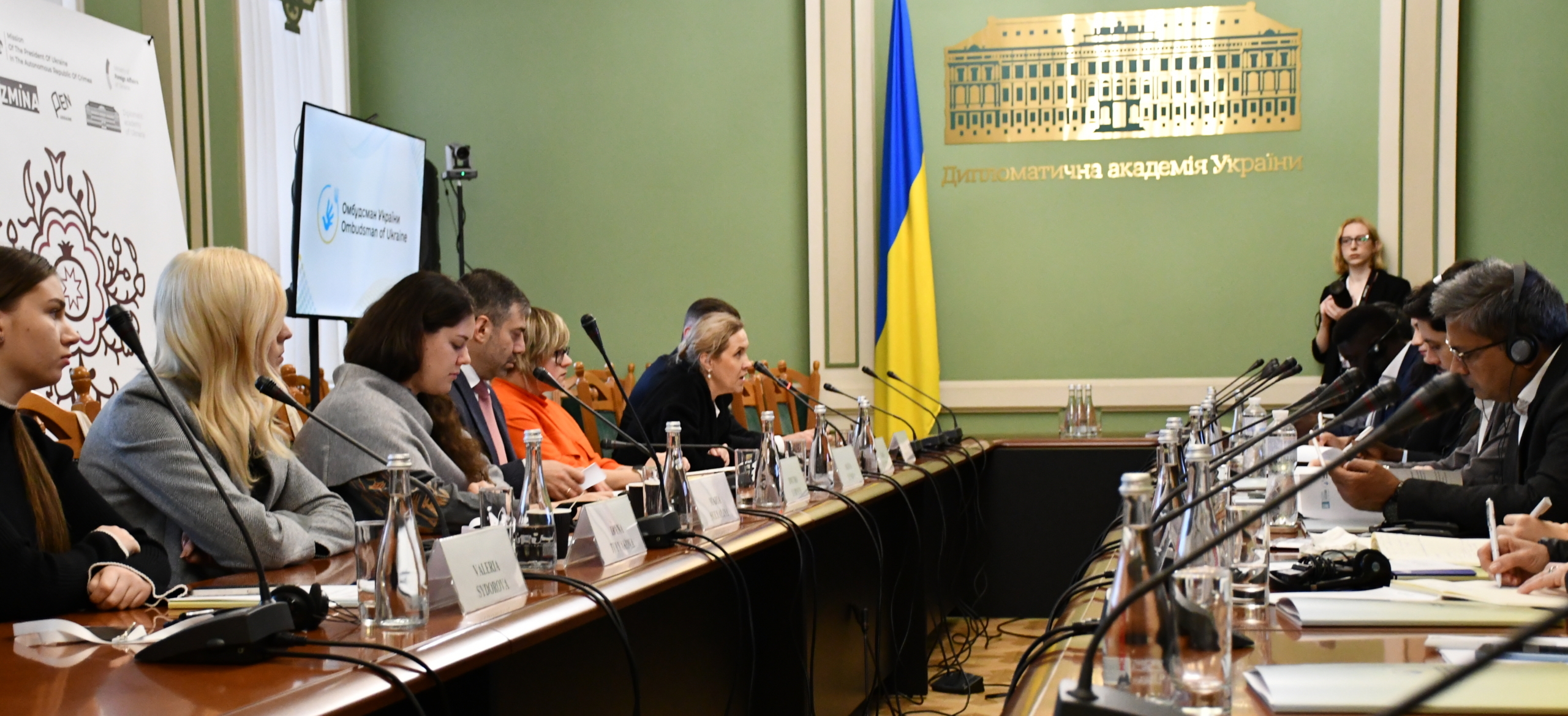
“The Russians have never disclosed information about Ukrainian children to anyone. There are one and a half million Ukrainian children living in the temporarily occupied territories, and we do not know how many of them have been deported,” said Dmytro Lubinets.
Alena Lunova noted that since 2014, Crimea has become a platform for testing the mechanisms of militarisation of the occupied territories.
“Russian military organisations exist to use Ukrainian children in the war against Ukraine in the future. The policies that Russia used in Crimea have now been extended to other occupied territories: forced citizenship, militarisation, cultural policy of Russification, etc. There were cases of deportation in 2014, but we and the world did not pay attention to it. We need to study these mechanisms and policies,” says Alena Lunova.
“Ukraine has shown how vital global security is”
The conference also touched on geopolitics and the role of the so-called “non-Western world” in building a just and stable peace. During the first discussion panel, the participants agreed that the main task of politicians today is to reform the UN and the Security Council, where Russia has a veto.

Uriã Fancelli, a Brazilian political commentator, believes that “Ukraine has shown how vital global security is.” According to him, Brazil also wants to reform the UN Security Council, and they have the same goal as Ukraine.
Brian Oruta, a journalist from Kenya, noted that Africa needs a stable supply of grain from Ukraine. Swasti Rao, a political scientist from India, also noted the importance of Ukraine’s potential in aircraft construction, engineering, medicine and innovative technologies for her country. She believes that the recent visit of Indian Prime Minister Narendra Modi has drawn the attention of millions of Asians to the war in Ukraine.
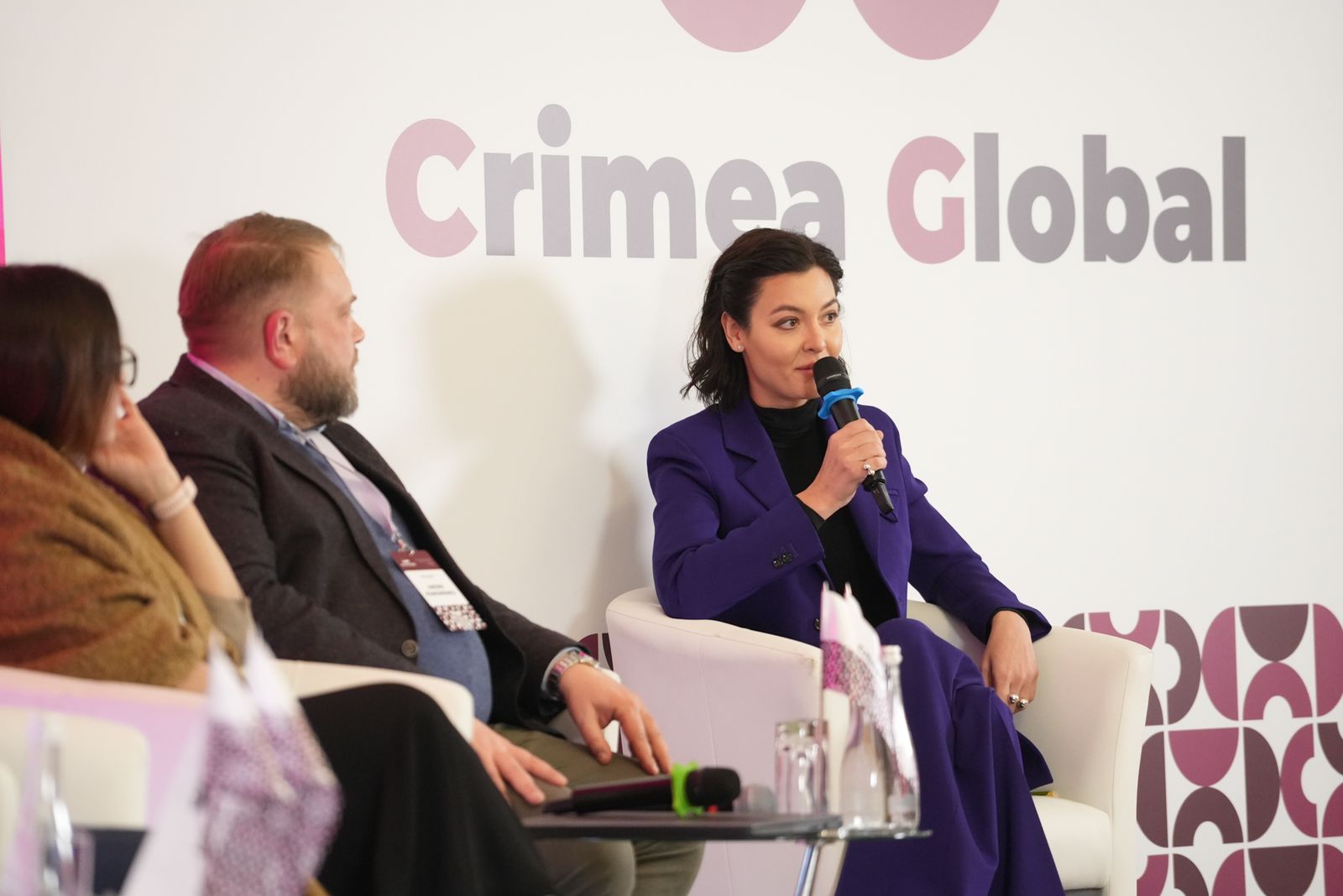 Dariia Zarivna
Dariia ZarivnaDinna Visnu, a political scientist from Indonesia who participated online, called on the Ukrainian authorities to start peace negotiations despite everything. “I know how hard it is, how difficult negotiations can be, but it is worthwhile to do it,” said Dinna. Dariia Zarivna, Advisor to the Head of the Office of the President of Ukraine, disagreed: “I was a little involved in the Minsk agreements. So I can say with certainty that any ceasefire from Russia is a big lie. Russia’s aggression against Ukraine is a colonial war for Russia, while for Ukraine it is a struggle for independence and the right to exist.“
If you have found a spelling error, please, notify us by selecting that text and pressing Ctrl+Enter.

